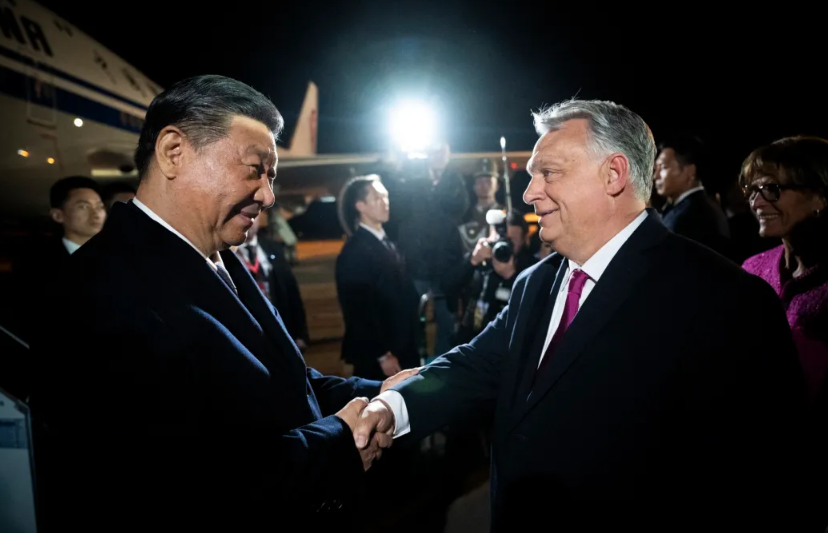
Vasilis Trigkas, Visiting Assistant Professor, Schwarzman College, Tsinghua University
Jun 07, 2024
Hungary's strategic partnership with China represents a bold pivot aimed at enhancing its geopolitical and economic standing amidst an era of great power competition. But to safeguard itself from geopolitical storms Hungary aims to work within the EU and punch above its weight to catalyze European strategic autonomy.
Nicola Casarini, Senior Fellow, Istituto Affari Internazionali
Feb 26, 2024
China’s connectivity project is being reconfigured across the old continent. Western and Eastern Europe are increasingly divided regarding the Belt and Road’s infrastructure projects and investments – yet, Europe as a whole is welcoming monetary connectivity with China and wider adoption of the renminbi.
Sebastian Contin Trillo-Figueroa, Geopolitics Analyst in EU-Asia Relations and AsiaGlobal Fellow, The University of Hong Kong
Dec 21, 2023
The EU’s attempt to lead global infrastructure development has been costly, but still lags behind America and China’s investment programs. Europe needs to make significant changes to catch up to the world’s leading powers.
Lucio Blanco Pitlo III, President of Philippine Association for Chinese Studies, and Research Fellow at Asia-Pacific Pathways to Progress Foundation
Nov 02, 2023
The Jakarta-Bandung High-Speed Railway is a milestone project under China's Belt and Road Initiative (BRI). This project reflects China's emphasis on history and neighborhood diplomacy, underlining its role as a leader in the Global South. Additionally, there are challenges alternative initiatives face in competing with China's vast infrastructure endeavors, as Beijing prioritizes economics and geopolitics in its approach.
Wang Yiwei, Jean Monnet Chair Professor, Renmin University of China
Oct 20, 2023
China pioneered the Belt and Road Initiative, but others have followed its lead. The BRI has been hailed as the largest international cooperation platform producing the most popular public benefits in the world today.
Li Yan, Director of President's Office, China Institutes of Contemporary International Relations
Oct 11, 2023
In 10th anniversary year of the Belt and Road Initiative proposed by President Xi Jinping, the international landscape is subject to changes like never before. China’s adaptations have proved successful and hold promise for future world peace.
Nicola Casarini, Senior Fellow, Istituto Affari Internazionali
Sep 08, 2023
Italy’s Belt and Road engagement, which was led by the previous liberal administration, is coming to an end, but the inroads China has made in Italy means that creating distance can’t be done with the stroke of a pen.
Wang Yiwei, Jean Monnet Chair Professor, Renmin University of China
Jun 21, 2023
China no longer needs to move mountains or reclaim seas, as in ancient legend. Through technology, infrastructure, trade, finance, people and government policies such barriers have long since vanished. The BRI does, however, revive an essential ancient spirit.
Brian Wong, Assistant Professor in Philosophy and Fellow at Centre on Contemporary China and the World, HKU and Rhodes Scholar
Jan 19, 2023
Recent headlines have broadcasted the Gulf Cooperation Council’s new deal with China, with tens of billions of dollars. Some may see it as a signal of a coming divorce with the West, but careful analysis reveals that the GCC can balance relations to both sides.
Sebastian Contin Trillo-Figueroa, Geopolitics Analyst in EU-Asia Relations and AsiaGlobal Fellow, The University of Hong Kong
Jan 03, 2023
The race of geopolitical strategies based on infrastructural development abroad is a part of the new great powers rivalry. The so-called geo-economics contest (Luttwak) is the new global battle, a competition through commerce for getting economic advantages at the intersection of investments and loans, contracts opportunities, conquest of more worldwide market share and improvement of own supply chains, with the declared noble aim of contributing to global development.